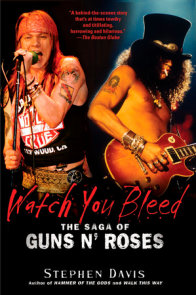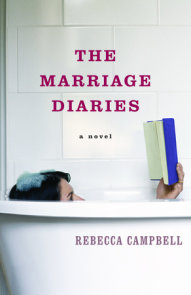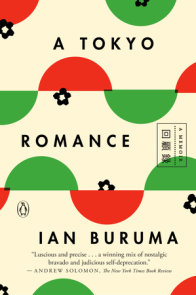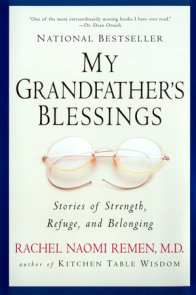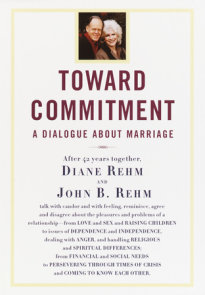READERS GUIDE
A Reader’s Discussion GuideTHE NEW RABBI
By Stephen Fried
The questions, topics, and commentary that follow are intended to deepen your understanding of Stephen Fried’s THE NEW RABBI. We hope it will enhance your reading experience.
Because THE NEW RABBI touches on issues of faith, of community, of the role of leaders, and of personal growth, we believe this book will spark fascinating discussion, debate, and ideas. We encourage you to share these thoughts with us; please contact the author via his Web site at www.stephenfried.com or the publisher, Bantam Books, via www.bantamdell.com.
Introduction
Praise for Stephen Fried’sTHE NEW RABBI
“Fried hoped to shed light on the future of the rabbinic profession—and indirectly, on the future of Judaism . . . and [he] gets it absolutely right.”
—Washington Post Book World
“Compelling. . . . There is not a leader who wouldn’t learn a lot from THE NEW RABBI, and probably enjoy every page as well.”
—The New York Times
“Engrossing . . . a multilayered account that will resonate with anyone concerned about the state of organized religion today.”
—Minneapolis Star Tribune
“[Fried is] a thoughtful explainer of difficult concepts . . . unafraid to tie together intellectual threads.”
—The Philadelphia Inquirer
For more information on THE NEW RABBI or to read an excerpt, visit www.stephenfried.com.
For other guides like this, visit the publisher’s site at www.bantamdell.com.
Printed in U.S.A.
Questions and Topics for Discussion
1) In explaining why he started writing this book, Stephen Fried says, “You never forget your first rabbi” (p. 2). Do you remember the first community or religious leader who had an impact on you as a kid? Was it a positive or negative impact, and why?
2) Reviewers have noted that THE NEW RABBI is about many searches, not just a congregation’s search for a new leader. It chronicles Rabbi Wolpe’s search for meaning at the end of his career, the author’s search for meaning after the death of his father, and a community’s search for how it can reinvent itself for the twenty-first century. But the book also explores the search of Americans for the role of organized religion in their lives. Which search was most interesting to you? Why?
3) Fried also explains that he became interested in doing an investigative book set in a synagogue because he had returned to active religious practice in his late thirties after the death of his father. Have you had a traumatic event that altered your view of the place of religion in your life? What was the event, and did it make you feel closer to the religion you grew up in, or further from it than ever?
4) One of the main characters in this book, retiring Rabbi Gerald Wolpe, allowed the author unprecedented access to the behind-the-scenes life of the clergy and a major American house of worship. Many have praised his openness, but others have said that letting a reporter into the private life of a community was a mistake. What do you think? Why?
5) In the book, Rabbi Wolpe refers to “the retail business of religion” (p. 17). Do you think that being a member of the clergy has always been part business, part calling, or that being a rabbi, priest, or minister has really changed in recent years?
6) THE NEW RABBI follows the meetings and deliberations of a search committee, made up entirely of volunteers, who will pick the future spiritual leader of the community. Have you ever served on a search committee? Have you ever had an intense experience serving on any volunteer committee? Can you imagine being on a committee that meets for three years to make a final decision, as the Har Zion search committee did?
7) One of the first debates among members of the search committee for the new leader at Har Zion is whether their new leader should be someone they can call by his/her first name—rather than a more formal, old-fashioned clergyman like Rabbi Wolpe (whom nobody calls Jerry). In your house of worship or organization, do you gravitate toward older, more formal leaders, or younger, more “user-friendly” leaders? Why? Does this differ from organization to organization for you?
8) In the book, you meet many different members of the clergy, especially Rabbi Gerald Wolpe, his son Rabbi David Wolpe, Rabbi Jacob Herber, and Rabbi Moshe Tutnauer. Which one would you choose to lead the services at your house of worship? And to which one do you think you’d turn privately in a time of need?
9) The author describes being almost surprised when he finds prayer comforting (p. 43) after his father dies. Do you pray? What for? Do you do it in a house of worship, or privately? And do you believe prayers are answered?
10) Throughout, author Stephen Fried remains open about the fact that there are times when he isn’t sure whether he is at the synagogue to report or to pray. “Am I here as a journalist or a worshipper?” he asks (p. 92) when he chooses to attend a High Holiday service at Har Zion instead of praying with his wife and family at their temple. Do you, as a reader, like the fact that the author wears two hats? Or does it bother you and make you question his objectivity? Do you think it is possible for a journalist to become part of the story and still maintain a journalistic distance?
11) How do you think you would feel if a book like this was written about your community? And what would you do if a journalist came to you and asked you to be a character in the book, and to tell him what went on at closed-door meetings?
12) Some Jewish leaders have said that no matter how accurate, a book like THE NEW RABBI should not be written because it reveals too much. Do you agree?
13) A major theme of THE NEW RABBI is the intense relationship between fathers and children. How do you (or did you) get along with your own father, and which father-child relationship in the book did you most relate to?
14) Another major theme in the book is mentorship, and how the relationships between mentors and protégés can change over time, either growing or eroding. Did you ever have a mentor? Do you still? What is/was your relationship with your mentor like?
15) A major turning point in THE NEW RABBI comes when the synagogue decides to try to elevate its young assistant rabbi, Jacob Herber, to the top clergy job even though he lacks experience. Many people view this decision as a mistake, however well-intentioned. Do you think it was a mistake? If so, who do you think is more to blame: the synagogue leaders for asking the rabbi to take the job, or the young rabbi for accepting it?
About this Author
Stephen Fried, an award-winning investigative journalist and essayist, is the author of Thing of Beauty: The Tragedy of Supermodel Gia and Bitter Pills: Inside the Hazardous World of Legal Drugs. His work has appeared frequently in Vanity Fair, The Washington Post Magazine, Glamour, GQ, and Philadelphia magazine. He lives in Philadelphia with his wife, author Diane Ayres.From the Hardcover edition.








